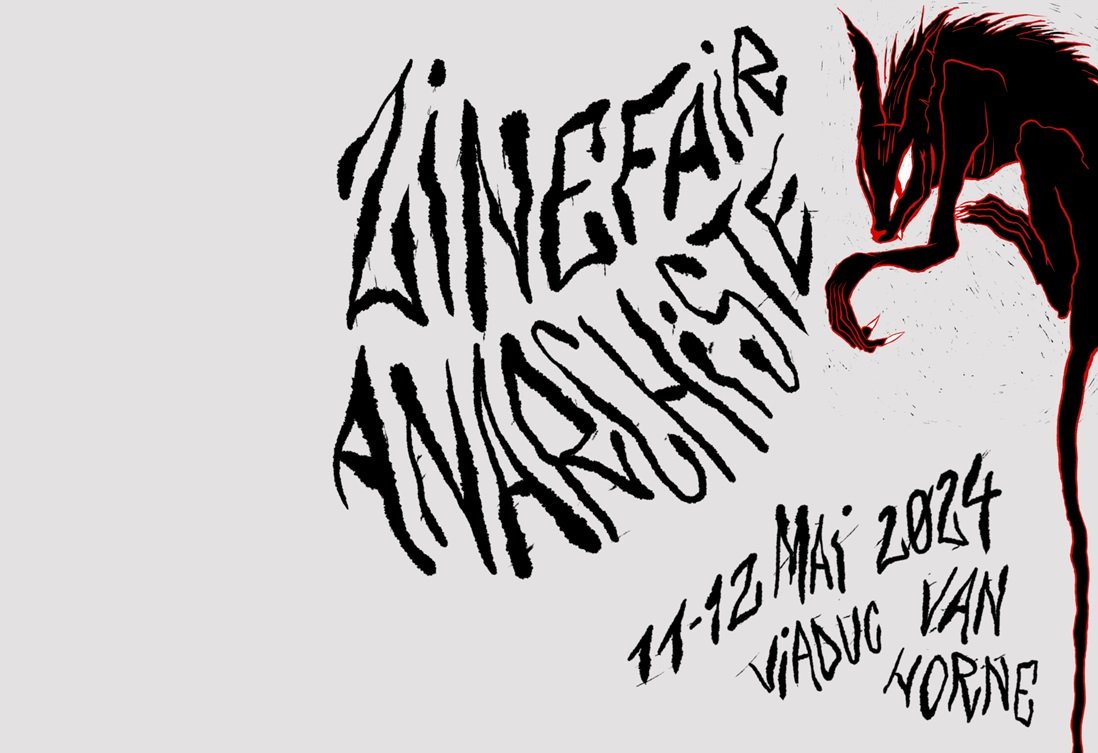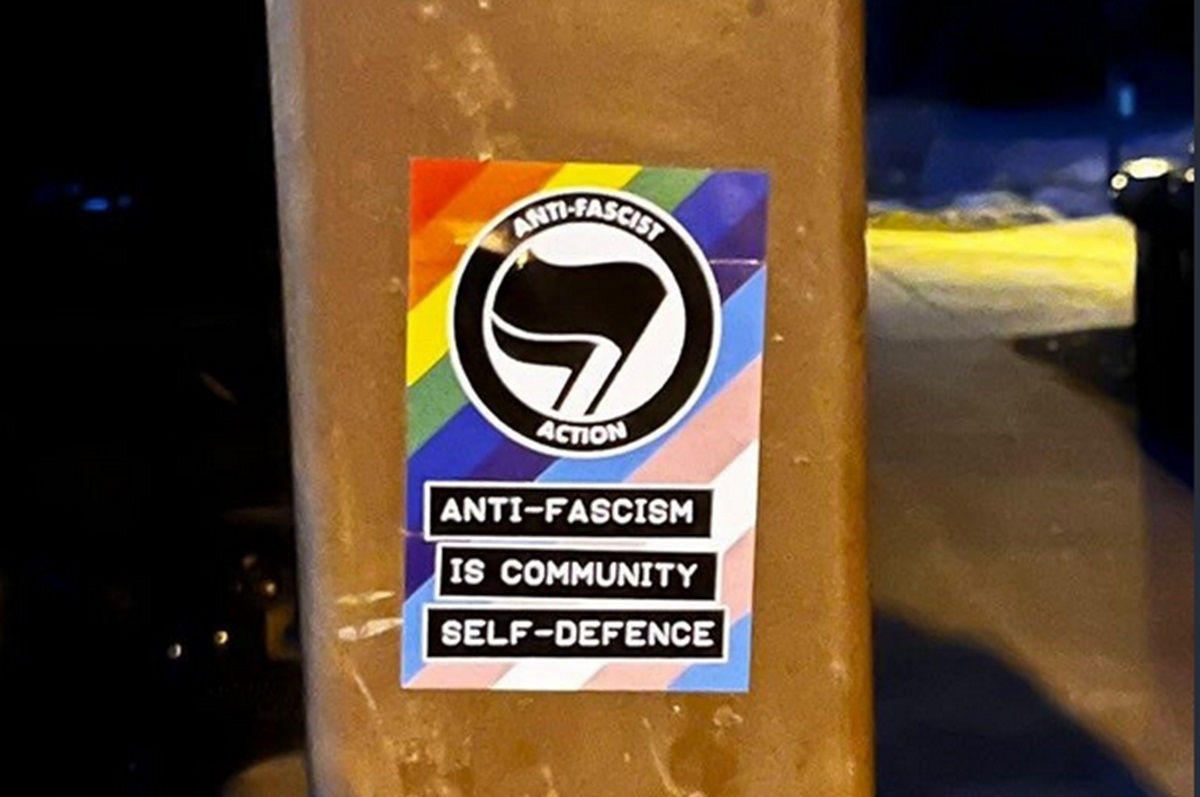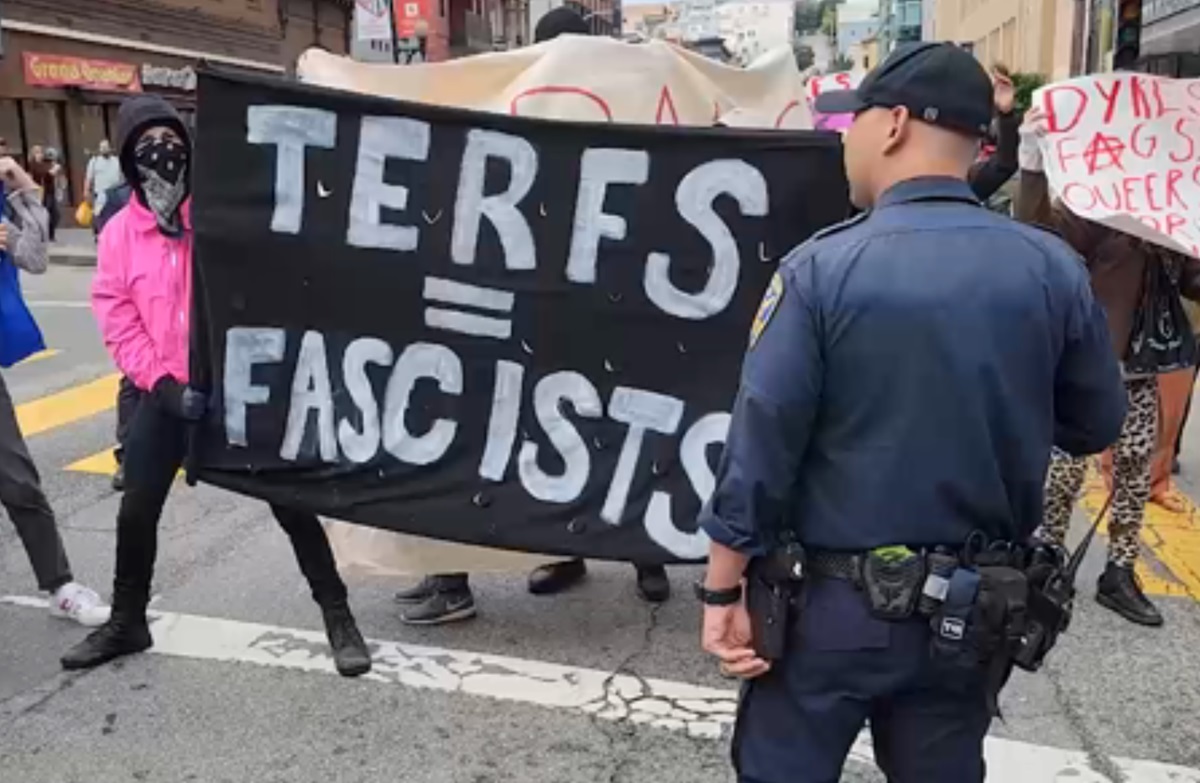Filed under: Anarchist Movement, Community Organizing, Disaster, Editorials, Featured, US

On this day, we must remember that for some communities, disasters have been unfolding for centuries, depriving people of life and liberty every single day.
Indigenous peoples in the Americas have been attacked and oppressed for over 500 years. This continues today. Every day. Indigenous communities in the United States have exceptionally high rates of poverty, unemployment, food insecurity, infant mortality, teen suicide, high school drop-outs, homelessness, alcohol and drug abuse, diabetes and other preventable diseases, incarceration, and violent crimes committed against them – in some instances the statistics are multiple times more than any other communities.
And today, in cities all over the United States, parades are held to celebrate the man who initiated this age of terror. Columbus Day is a celebration of genocide. Christopher Columbus remarked, upon meeting the Taino peoples of so-called Hispaniola (now known as Haiti & Dominican Republic), that “they are artless and generous with what they have… Of anything they have, if it be asked for, they never say no, but do rather invite the person to accept it, and show as much lovingness as though they would give their hearts.” Columbus was a different sort, however; based on this observation he concluded that “with fifty men they can all be subjugated and made to do what is required of them.”
On his return trips, that is exactly what he did. He proclaimed the following: “I certify to you that, with the help of God, we shall powerfully enter into your country, and shall make war against you in all ways and manners that we can, and shall subject you to the yoke and obedience of the Church and of their highnesses; we shall take you, and your wives, and your children, and shall make slaves of them, and as such shall sell and dispose of them as their highnesses may command; and we shall take away your goods, and shall do you all the mischief and damage that we can, as to vassals who do not obey, and refuse to receive their lord, and resist and contradict him; and we protest that the deaths and losses which shall accrue from this are your fault, and not that of their highnesses, or ours, nor of these cavaliers who come with us.” The Taino could not understand a word of this, and did not adequately resist the tyrants who demanded that each person over 14 extract a daily quantity of gold. If they did not bring enough, their hands were chopped off; slaves who tried to escape were burned alive.
Why do we celebrate this man?
Because Colonization is a system that erases the history of the people and replaces it with false narratives that glorify the colonizers. Colonizers maintain their power with violence, chains, and technologies of war, but also with elaborate deceptions, including signing and then shamelessly breaking treaties, coercing conversion to religions that justify slavery, and encouraging addiction and substance abuse, deliberately breaking cultural fabrics.
Colonization, by its very nature, attacks and pillages the land, water, and ecosystems. As a result, it must attack, rob, enslave, or undermine all those peoples who are of the land, water, and ecosystems, those who live in ways that protect and nurture natural cycles.
In the dominant Euro-centric culture, which as a culture of colonization distorts the histories of these lands and peoples, we are taught to envision colonization as a past period of conquistadors, an age of brutality and callousness which is far behind us. But the Era of Colonization continues today. Now it is perpetrated by corporations instead of conquistadors, and methods have become more subtle and convoluted, but no less vicious.
And all over the world, the land, water, ecosystems, and peoples who protect them are under attack.
In the United States, oil and natural gas pipelines are being constructed in spite of ample evidence of their danger. In the last ten years, over 3000 pipeline leaks and spills have been recorded. Fracking continues in at least 22 states even after it has polluted groundwater and surface waters irrevocably, increased carbon and methane in the atmosphere, accumulated massive amounts of chemical waste, and even caused earthquakes. Canada’s Alberta Tar Sands project, for every 1 barrel of oil produced, requires the equivalent of 2/3 a barrel of oil energy input and more than 6 barrels of water consumed and poisoned. Most pipeline projects seek to bring super-toxic and inefficient “bottom-of-the-barrel” fossil fuels like these to markets which would be much better served by conversion to renewable energy; new pipeline projects are climate disasters because, if completed, they “lock in” decades of additional dirty energy to justify their existence and recoup their enormous investment costs.
Indigenous communities have always been on the frontlines of resistance to pipeline expansions. From Standing Rock Lakota at the center of Turtle Island, to Unist’ot’en and Mik’maq on the far western and eastern edges, native peoples and their allies are doing everything in their power to stop the rapid and extremely dangerous expansion of fracking and tar sands, and unprecedented development of pipelines that carry this gas and oil, as well as other forms of mining like those resisted by the Apache at Oak Flat, Arizona and the Ojibwe at Bad River, Wisconsin.
Non-indigenous allies join the resistance, acting in solidarity. Tens of thousands joined the Standing Rock camps, and campaigns fighting against pipelines in other areas are inspired by the indigenous-led model. We see solidarity coming from diverse allies, most notably from Black Lives Matter and other growing social justice movements as well as grassroots climate and environmental activism networks like Earth First! and Rising Tide. Members of the Mutual Aid Disaster Relief network are proud to have assisted in these struggles as medics, nonviolent civil disobedience trainers, educators and promoters, and humble firewood splitters (a great role for those who want to use their privilege to support indigenous-led movements, it was an unglamorous but essential job in frigid North Dakota!).
We must understand that the unnaturally calamitous effects of storms and other natural disasters are caused not only by climate chaos which is the result of colonization in the form of deforestation, industrial agriculture, and fossil fuels; but also by the systematic deprivation of peoples’ power to prepare and care for themselves. Hurricane Irma devastated the physical infrastructure of Cuba, but caused only 10 deaths, because communities were so well prepared and neighbors helped each other stay safe. Compare to wealthier Florida, where more than 40 people were killed by a less direct hit from Irma. Some of the worst effects of Hurricane Harvey are due to petroleum and chemical spills; residents living near these industries were already suffering ill effects on their health and longevity even before the storm.
And now we see the terrible effects of Hurricane Maria in Puerto Rico. Another island ravaged by Columbus, considered by some to be “the oldest colony in the world,” it is a perfect example of how systematic colonization installs dependence on the colonizers, so that self-determination and self-sufficiency become impossible. Crippled by the repercussions of debt and neoliberal “austerity,” Puerto Rico’s antiquated water and sewage systems, dirty fossil-fuel electrical grid, and cash-crop focused agriculture have all failed, and now disempowered communities are desperately awaiting aid from outside. This aid is coming too little too late, with offensively paltry provisions from the US government in the form of tiny and nutritionally-empty junk food rations. No longer the invasive brutality of Columbus, contemporary colonization is so well-established and pervasive that it can cause a different type of crushing violence simply by willfully neglecting those who are least responsible for the causes of climate chaos but who suffer from it the most.
And as with all colonized territories, Puerto Rico is home to numerous environmental atrocities as well. A recent article about the need for Mutual Aid Disaster Relief in Puerto Rico mentions examples like Vieques and 22 other Superfund sites. Elsewhere, more environmental catastrophes are imminent. Pipelines leak. Mine waste spills and devastates rivers. These “accidents” are far too common to be anything other than callousness and negligence from corporations that consider land, water, ecosystems, and communities to be colonial property which can “be subjugated and made to do what is required of them.”
For most of us, we engage in disaster relief out of compassion, out of the pain caused when we witness others suffering. What if we recognized the daily disasters of colonization? The disasters of neoliberal capitalism, in the forms of land theft, dirty development, austerity, hyper-concentration of wealth in the 1%, and cultural homogenization?
Pushing back against colonization opens space to breathe, to hope, to recuperate. Direct action to slow and stop the unnatural disasters caused by neoliberal capitalism ceases and prevents pain and suffering. Resistance is disaster relief.
In many cities around the US, Columbus Day has been abolished and Indigenous Peoples Day is celebrated instead. This campaign to end the celebration of a greedy, genocidal perpetrator of terror is admirable. It is closely related to the campaign to remove Confederate monuments which were erected during the Jim Crow era for the express purpose of intimidating people of color, reminding them that white supremacists were still the real power-holders.
Let us all stand in solidarity with these movements, just as we stand in solidarity with communities recovering from hurricanes, floods, fires, and earthquakes. On this Indigenous Peoples Day, be a disaster responder. Show your compassion through resistance, through demands for justice. Support those who are struggling against the daily disasters of colonization and racist oppression. For those with more privilege, use it to amplify and celebrate the voices of those with less.
More specifically, join or donate to movements against pipelines like Dakota Access in North Dakota and Iowa, Keystone XL in Nebraska and Oklahoma, Trans-Pecos in Texas, Line 3 in Minnesota and Wisconsin, Line 5 in Michigan, Atlantic Coast in Virginia, Sabal Trail in Florida, Trans Mountain in British Columbia, or anywhere else grassroots efforts are fighting to stop a greedy Corporate Columbus. Wherever you may be, celebrate the recent defeat of the Energy East proposal and then get ready for 3 days of global divestment action with indigenous-led coalition Mazaska Talks (really, get in on this – divestment campaigns appear to be one of the most effective tactics nowadays).
Some members of the Mutual Aid Disaster Relief network are organizing direct action support in Puerto Rico – please promote and give generously to their fund-raiser!
Others in our network are giving Mutual Aid Disaster Relief training tours in 2018, focused on “Community Organizing as Disaster Preparedness” and combating “Disaster Capitalism” with “Solidarity Not Charity.” If your community is ready to join the growing movement of daily disaster responders, we would love to visit you! Learn more here.
With fierce solidarity,
tyler and Mutual Aid Disaster Relief





